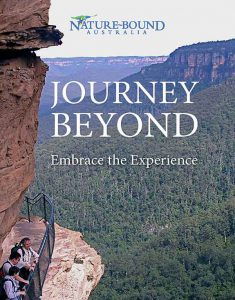Before booking and participating in our tours, we ask that you read our aspirations and commitments relating to ethical travel and responsible travel governing our business, operational permits and ecotourism accreditations.
Our journeys will take you into wonderful wild places which, although diverse in character and appeal, contain sensitive environments, pristine habitats and the preserve of wildlife, heritage and culture. They also provide the soul and inspiration for generations to follow.
You will be visiting places universally acknowledged as jewels in the global and national assets, carefully managed by informed authorities, individual and collective, in the face of increasing pressure and impact from mankind itself.
Though we are all humble students in the natural world, we acknowledge the wonders and needs of all life forms which depend on our committed understanding and care. We support those individuals and organizations around the world (and locally) who are leading the way in sensitive and sustainable best environmental practices.
We seek your co-operation in ensuring each of our journeys meet the requirements and conditions of permitted access and the ethical travel, responsible travel standards we uphold.
- We will comply with the requirements of those entrusted with the management of the National Parks and World Heritage Listed Areas we visit.
- We will stay on and not stray from formed or designated walking trails. Where permits allow our passage across country not accessed by trails we will take the path of least impact on the environment visited.
- Our vehicles will travel only on designated roads and tracks.
- All species of fauna and flora, readily visible or not, will be left in place to exist and grow as nature intended.
- We will remain at a responsible distance (of at least 30 metres) from animals and bird life which have gathered for breeding, feeding or rest, while keeping noise to a minimum. We will stay on designated trails, retreat if necessary and in any case avoid placing them under any extraordinary stress by surrounding or cornering them, inhibiting their means of access or path to escape, touching, feeding or relentlessly following them, causing separation between parents and young, disturbing nests, protective foliage or camouflage, causing undue noise or invasion.
- In the interests of sustainable environments and nature based tourism, we will encourage and support, where appropriate and feasible, local services having a compatible ethical travel and responsible travel policy to our own.
- We will not foul waters or leave rubbish or litter in the fragile areas we visit so ensuring all wastes are contained and carried clear of the area for thoughtful disposal in facilities provided and managed by neighbouring communities.
- We will utilise toilet facilities provided and if urgency prevails bury human waste to a safe depth and at least 100 metres from any water course, or if so decreed by National Parks Authorities we will carry human waste from the Park for thoughtful disposal, eg Kosciuszko National Park. Personal washing must be conducted at least 50 metres distant from lakes and streams. Only natural bio-degradable cleaning agents will be used.
- We will avoid lighting open fires or taking wood from the environment for fuel except where park management has elected to provide constructed facilities and resources.
- General no smoking provisions apply to our journeys but in all instances smoking within a National Park or World Heritage Listed Area is discouraged and all cigarette butts must be extinguished and taken out of the park for thoughtful disposal.
- All our journeys must enrich or enhance the environmental awareness of our participants either as a direct contribution from our responsible guides who become the environmental conscience of the group and/or through personal discovery stimulated by the immersion in nature itself. Group members will be encouraged to share their experiences and discoveries spontaneously with their fellow travellers.
- Our travel groups of 4 to 12 will be encouraged to walk the trails at an easy pace (for that is more enjoyable) in smaller random sub- groups providing minimal disturbance to the social envelope of the journey and to maximise the prospect of a close undisturbed and spontaneous relationship with the wildlife frequenting the area. At all times we will share and not impede the enjoyment and experience of other users of the park and trails.
- We will not support or condone the purchase of products or services which serve to diminish or threaten the habitats or species we set out to enjoy. In Australia this specifically relates to Koalas, furs and skins, coral and sea creatures, plants and birds.
- We seek to visit but not invade communities and cultures as we are guests wherever we travel. We visit to experience but not to criticise and we encourage and applaud those who are applying their investment and energy to a better world.
- We encourage all our guests to be well prepared for their journey so as to minimise any undue impact on fellow travellers and community emergency resources.
- Despite any accounts to the contrary, in Australia you will rarely encounter dangerous wildlife though mating seasons in particular are natural periods for alert. If you do not engage in interference and conflict and you stop and wait awhile, the creature is likely to move on.
There are commonsense ethical travel aspects to consider which will ensure you are of minimum concern to your tour leaders, park management and local communities:-
- Take direction from your guide or park management at all times
- Be fit and prepare well for your holiday to maximise enjoyment
- With injury and sickness, prevention is better than cure
- Be aware of the causes and prevention of heat exhaustion and hypothermia if visiting extreme environments
- Begin each day by familiarising yourself with the walking activity, the trail, prevailing conditions and precautions
- Leave details of your intentions should you choose an independent activity and check back in on your return.
Wilderness is a scarce and diminishing resource world-wide. It protects a complex variety of life and allows the natural processes of evolution to continue with minimal interference. Wilderness is a storehouse for future genetic discovery and a comparative base for measuring the value of change and interference in other landscapes and land uses. It protects and reminds us of an Aboriginal landscape of immense cultural significance. It embraces the “outback” and “bush” image or identity of Australia.
View our tour offerings, then click here to make an enquiry. Click here to make a booking.



